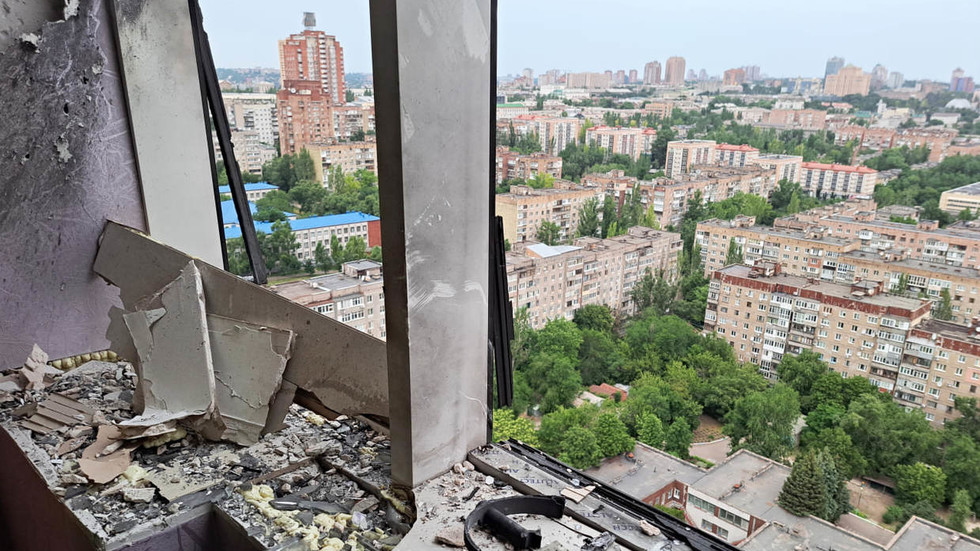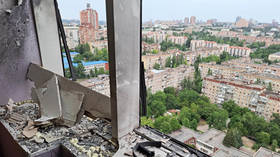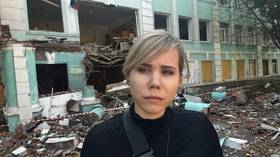
Kiev’s use of drones against Moscow and border regions was raised at the Security Council

File photo: Aftermath of a Ukrainian shelling in Donetsk, June 21, 2023 © Sputnik
The UN is concerned about the shelling and drone attacks on Russian civilians, which contravenes international law, Under-Secretary-General Rosemary DiCarlo told the Security Council on Thursday.
Ukraine has ramped up artillery attacks on the Russian regions of Donetsk, Kursk and Belgorod over the past three months, as its much-heralded offensive on the Zaporozhye front failed to make any significant advances. The shelling frequently employs US-supplied cluster munitions, banned by most UN member states.
Kiev has also ramped up attempts to target Moscow’s financial district with drones. The UAVs that managed to slip past the Russian capital’s air defenses have caused minor property damage, but so far no casualties.
“We are also concerned about the possible impact on civilians of the shelling of Russian border communities and drone attacks deep inside Russia, including Moscow,” said DiCarlo, an American diplomat overseeing Political and Peacebuilding Affairs since 2018.
“Attacks against civilians and civilian infrastructure – wherever they may occur – are indefensible and strictly prohibited under international law,” she added.

Read more
DiCarlo made the remarks as an aside to the speech focusing on condemning Russia’s “full-scale invasion” and expressing the UN’s “unwavering” commitment to Ukraine’s sovereignty, independence and “territorial integrity within its internationally recognized borders.”
Russia’s ambassador to the UN, Vassily Nebenzia, told the Security Council that the Ukraine conflict was a proxy war against Moscow planned at least since 2014 by Washington, London and Brussels, who are “not at all interested in stopping it.”
“We would not be where we are if the Kiev regime had not launched a war in 2014 against its own Russian-speaking citizens in the east of the country” and failed to comply with the UN-approved Minsk Agreements, which their authors admitted were a ploy to prepare Ukraine for war, Nebenzia insisted.




